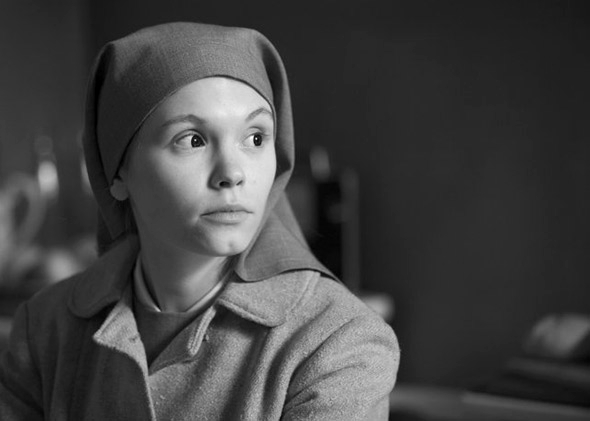
Some films come along with a bombastic nature, throwing themselves in your face with a multitude of bells and whistles. Then there are others that arrive with a quiet dignity, one that you discover for yourself. Ida is such a film, a haunting drama of dark secrets and family tragedy. It is 1962 and Anna (Agata Trzebuchowska) is a young woman living in a Polish convent, she is sheltered from any other life since she was left there as an orphan baby. She is due to take her vows, but is told to visit her Aunt first, her only living relative, to learn about her past before committing to that way of life forever.
Anna meets her worldly but cynical aunt Wanda (Agata Kulesza) and is hit with the revelations that her real name is Ida, that she is Jewish and that she was sent to the orphanage when her parents were killed. The unlikely duo then embark upon a journey of discovery, to find out what happened to Ida’s parents and where they were buried.
Ida is a film that deals with powerful themes but presents these with an understated beauty that doesn’t adhere to Hollywood over- sentimentality; it is also one of the most stunningly shot films to emerge this year, very much to the credit of cinematographers Ryszard Lenczewski and Lukasz Zal. Director Pawel Pawlikowski presents a masterclass in black and white imagery; each scene is assembled with mesmeric precision. Every shot looks like a piece of art, as Ida explores the outside world anew concealed in her habit, it is like a Vermeer painting has come to life. Newcomer Agata Trzebuchowska impresses as Ida, she has an expressive quality that means she can carry a wordless scene with a look that tells us everything we need to know and Agata Kulesza as Wanda provides a steely complexity of a woman battling with a harrowing past.
The narrative moves with a refined devastation as we learn the fate of Ida’s parents but there are also moments of subtle pleasure, the use of jazz music that Ida hears for the first time brings a revelation of warmth to an otherwise wintry world. The final scene carries an air of ambiguity that is reminiscent of Truffaut’s The 400 Blows, we have travelled with our heroine and though her future is uncertain, we know that it will be shaped by her new knowledge of the past.
No extras
Linsey has awarded Ida on DVD five Torches of Truth











{ 1 comment… read it below or add one }
Do not seek to discern much, though, about why Wanda is only now finding out what happened to her sister, because the film directly yields little concerning this patent question…